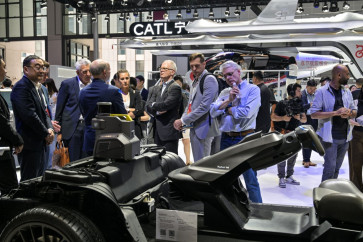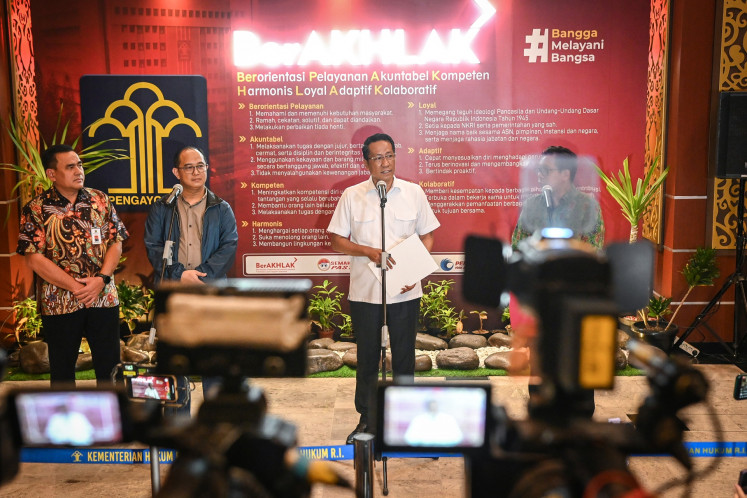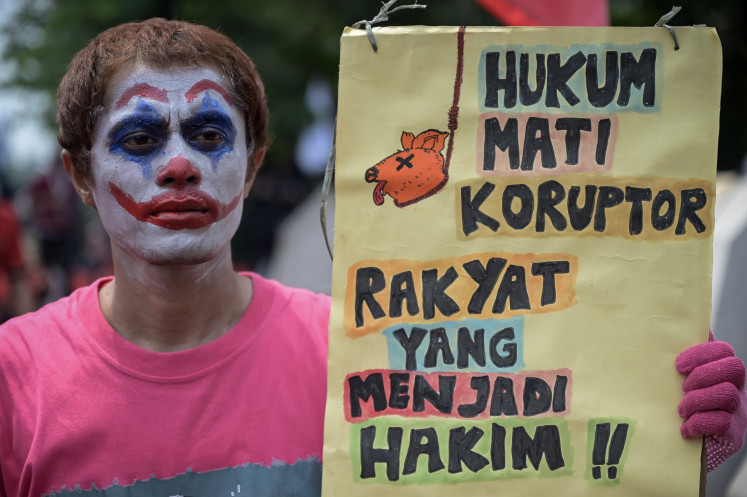Popular Reads
Top Results
Can't find what you're looking for?
View all search resultsPopular Reads
Top Results
Can't find what you're looking for?
View all search results‘Community-based trash management needed’
The founder of the city’s largest garbage bank warned that unless the Denpasar administration introduces a community-based, self-managed garbage management system it will face an uphill battle in coping with the mounting trash problem
Change text size
Gift Premium Articles
to Anyone
T
he founder of the city’s largest garbage bank warned that unless the Denpasar administration introduces a community-based, self-managed garbage management system it will face an uphill battle in coping with the mounting trash problem.
“I think the most feasible solution for Denpasar, and also Bali, is implementing a scheme that would make it possible for the community to manage the trash it produces,” Cahaya Partha Jaya’s founder Made Bagiada said.
Cahaya Partha Jaya is one of three trash banks operating in Denpasar.
The banks buy inorganic trash from scavengers and individuals and provide them with savings accounts to deposit their money.
It now has 100 regular clients, mostly schoolchildren who collect empty plastic bottles from school yards and deposit them in the banks.
Bagiada pointed out that a large number of uncollected garbage in the city was organic. This type of trash does not attract scavengers, who prefer inorganic trash due to its commercial value and recycle-ability, he said.
“That’s why this organic waste should not be sent to the final landfill. Instead, this waste should be collected, treated and processed by the local community that has produced this waste in the first place.”
This proposed scheme, he argued, would take a considerable burden off the shoulder of the city’s sanitation and park agency. Presently, the agency’s garbage trucks have to ferry this organic waste to the final landfill in Suwung, some 20 kilometers south of Denpasar.
The landfill itself has yet to find the best technology to process the organic waste. Consequently, piles of organic waste have grown taller and taller in the landfill.
“Take my neighborhood as an example. The garbage trucks are overwhelmed by the amount of garbage left next to the road by the residents. Most of the garbage is organic in nature and actually could be processed by the local community,” he added.
Bagiada proposed that the city administration establish a cooperation with all banjar (traditional neighborhood association) in the city and assist them in creating their respective community-based, self-managed garbage management system.
“The absence of this collaboration is the very reason why the garbage management system in the city is still far from ideal,” he stressed.
The administration should pay more attention to organic rather than inorganic waste management. The latter has high commercial value that naturally has drawn a large number of people to the business of managing and processing it.
“There are many buyers of inorganic garbage operating in Denpasar. Moreover, several big recycle plants in Surabaya have often sent representatives here to purchase inorganic garbage in bulk,” Bagiada said, adding that his bank had a turnover of Rp 500 million (US$56,000) a year.
Denpasar sanitation and park agency data showed that the city residents produced an average of 2,500 cubic meters of garbage per day, 80 percent of which was household waste.
“We are still lacking an adequate number of garbage trucks and workers,” agency official Dewa Sayoga said.
Presently, the agency has 1,400 workers, some 300 short of the ideal number, and 33 garbage trucks.
“The public has relied too much on the government for this garbage issue,” he said.










